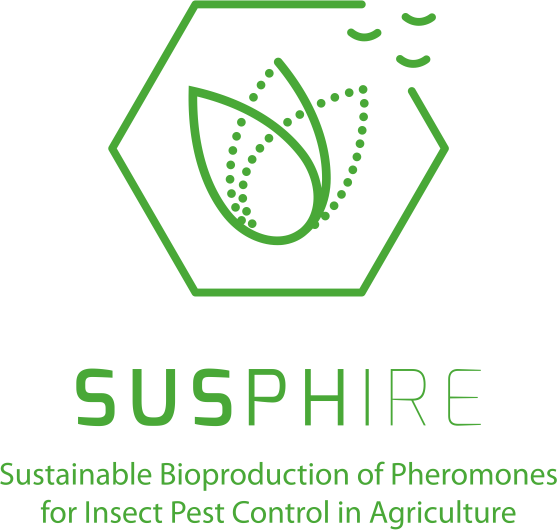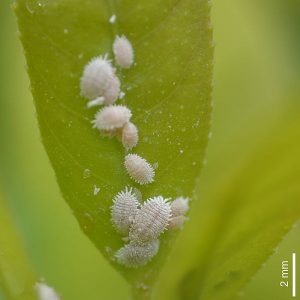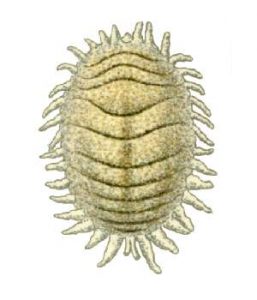

The citrus mealybug (Planococcus citri)

SUSPHIRE aims to provide a sustainable, low-cost biomanufacturing platform for the commercial production of insect pheromones. The introduction of biotechnology approaches to pheromone production will expand the use of sex pheromones for sustainable pest control in agriculture, reducing its environmental impact.
Some of the most aggressive pests of agriculture are insect larvae. These are frequently controlled by applying pesticides, which are progressively being restricted due to concerns about their non-specificity and negative impact on biodiversity. Insect sex pheromones, produced by virgin females to attract mates of the same species, present a sustainable alternative to conventional pesticides. Pheromones are already used for insect control by dispensing in plant production environments to trigger sexual confusion in the target species preventing them from breeding and laying eggs within the crop, thereby providing a highly species-specific control method.
Chemical synthesis is currently the only approach for manufacturing insect pheromones. This method sometimes uses toxic ingredients or creates toxic by-product. Further, the unusual chemical characteristics of many insect pheromones mean that chemical synthesis strategies are not cost effective. For example, the sex pheromones of aggressive Coccoidea pests (scale insects and mealybugs) for which better control methods are highly desirable, have unusual structures for which chemical synthesis is both difficult and expensive.
